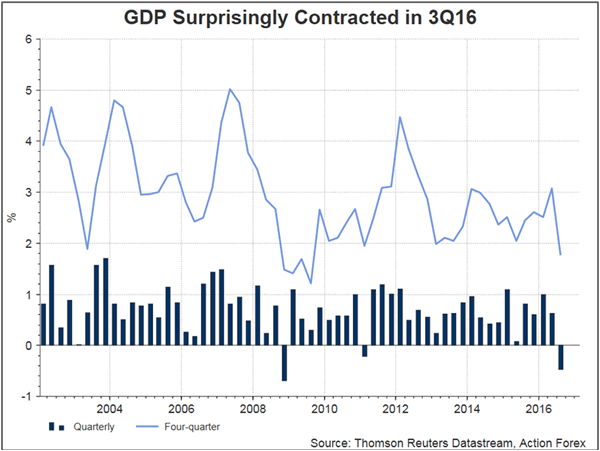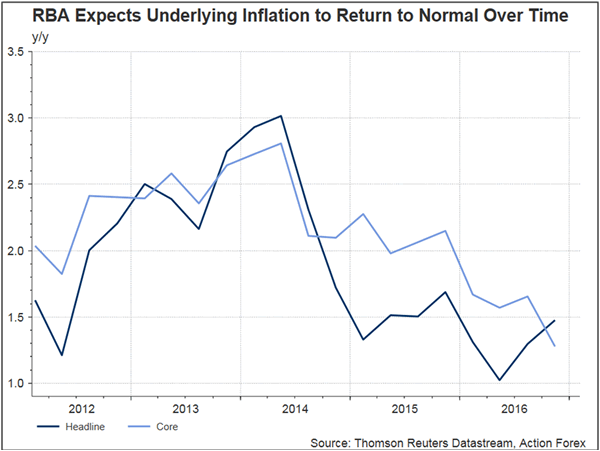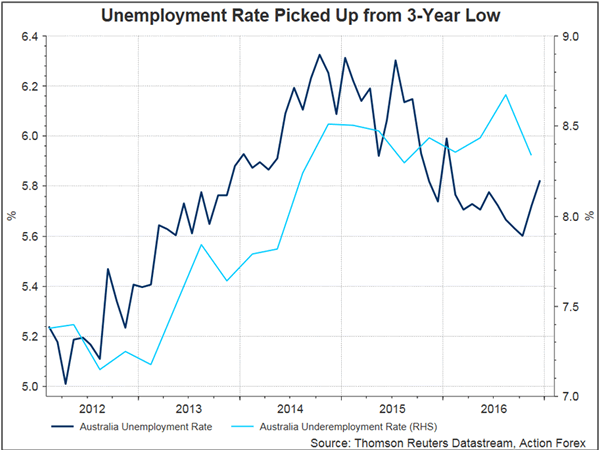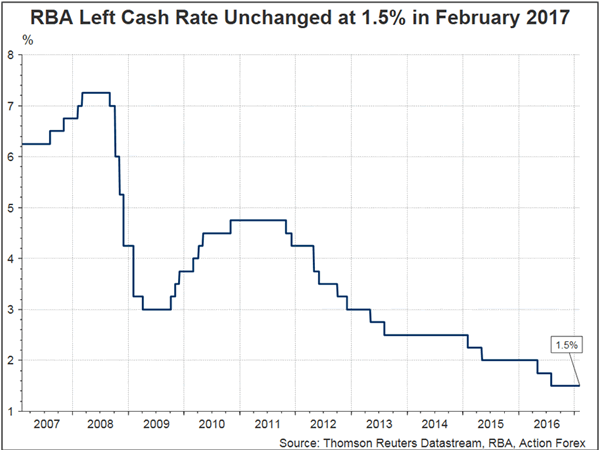As widely anticipated, RBA left its cash rate unchanged at1.5% in February, its first meeting in 2017. Policymakers acknowledged improvement in the global economic outlook. They also retained the view that the domestic economy would growth above-trend. The overall monetary stance is neutral, signaling the central bank is in no hurry to adjust the policy. The market is closely awaiting Governor Philip Lowe’s speech on Thursday and RBA’s Statement on Monetary Policy (SoMP) on Friday. The SoMP would reveal policymakers’ updated economic forecasts. We expect downgrades of both growth and inflation outlooks.
As noted in the monetary statement, RBA attributed that weaker-than-expected GDP growth in 3Q16 to temporary factors and forecast growth to return to normal in 4Q17. Policymakers judged that Australia’s economy is ‘continuing its transition following the end of the mining investment boom’. They maintained the central forecast of GDP growth at ‘around +3% over the next couple of years’, as driven by ‘further increases in resource exports’ and the end of declining mining investment’. They expected consumption growth to ‘pick up from recent outcomes, but to remain moderate’, as well as further improvement in non-mining business investment’. The central bank acknowledged that inflation has remained quite low. Yet, this has not changed its inflation forecasts with headline inflation expected to ‘pick up over the course of 2017 to be above +2%’. The rise in underlying inflation is expected to be ‘a bit more gradual’.
RBA indicated that the employment market was rather mixed. While the unemployment rate has picked up, growth in full-time employment ‘turned positive late in 2016’. The central bank anticipated expansion in employment over the period ahead. Wage growth has remained subdued and is expected to stay low for some time.
On the housing market, RBA noted the developments ‘vary considerably around the country’. As mentioned in the statement, ‘conditions have strengthened further and prices are rising briskly’ in some markets while ‘prices are declining’ in others. Policymakers acknowledged a ‘considerable additional supply of apartments’ coming, over the next couple of years, in the eastern capital cities. On rents, the central bank noted that its growth is ‘the slowest for a couple of decades’.
RBA believed that the monetary policy has remained accommodative and should be ‘consistent with sustainable growth in the economy and achieving the inflation target over time’. Policymakers added that the appreciation of Australian would complicate the monetary policy stance. We see the monetary statement is neutral, suggesting that RBA is not hurry to adjust its policy.




